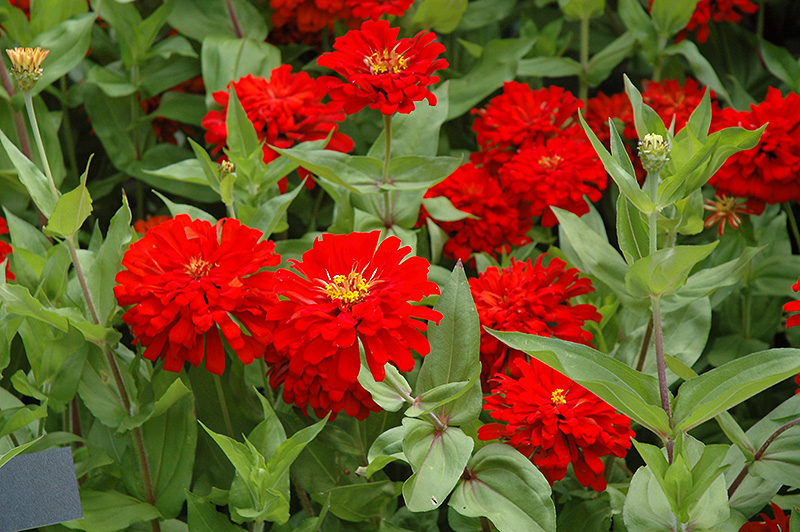Height: 20 inches
Spacing: 10 inches
Sunlight:
![]()
Hardiness Zone: (annual)
Ornamental Features
Red Sun Zinnia features bold double scarlet ball-shaped flowers with yellow eyes at the ends of the stems from mid spring to late summer. The flowers are excellent for cutting. Its pointy leaves remain light green in colour throughout the season.
Landscape Attributes
Red Sun Zinnia is an herbaceous annual with an upright spreading habit of growth. Its medium texture blends into the garden, but can always be balanced by a couple of finer or coarser plants for an effective composition.
This is a relatively low maintenance plant. Trim off the flower heads after they fade and die to encourage more blooms late into the season. It is a good choice for attracting butterflies and hummingbirds to your yard. It has no significant negative characteristics.
Red Sun Zinnia is recommended for the following landscape applications;
- Mass Planting
- Rock/Alpine Gardens
- Border Edging
- General Garden Use
- Container Planting
- Hanging Baskets
Planting & Growing
Red Sun Zinnia will grow to be about 18 inches tall at maturity, with a spread of 14 inches. When grown in masses or used as a bedding plant, individual plants should be spaced approximately 10 inches apart. Its foliage tends to remain dense right to the ground, not requiring facer plants in front. This fast-growing annual will normally live for one full growing season, needing replacement the following year.
This plant should only be grown in full sunlight. It does best in average to evenly moist conditions, but will not tolerate standing water. It is not particular as to soil type or pH. It is highly tolerant of urban pollution and will even thrive in inner city environments. This particular variety is an interspecific hybrid.
Red Sun Zinnia is a fine choice for the garden, but it is also a good selection for planting in outdoor containers and hanging baskets. With its upright habit of growth, it is best suited for use as a 'thriller' in the 'spiller-thriller-filler' container combination; plant it near the center of the pot, surrounded by smaller plants and those that spill over the edges. Note that when growing plants in outdoor containers and baskets, they may require more frequent waterings than they would in the yard or garden.

